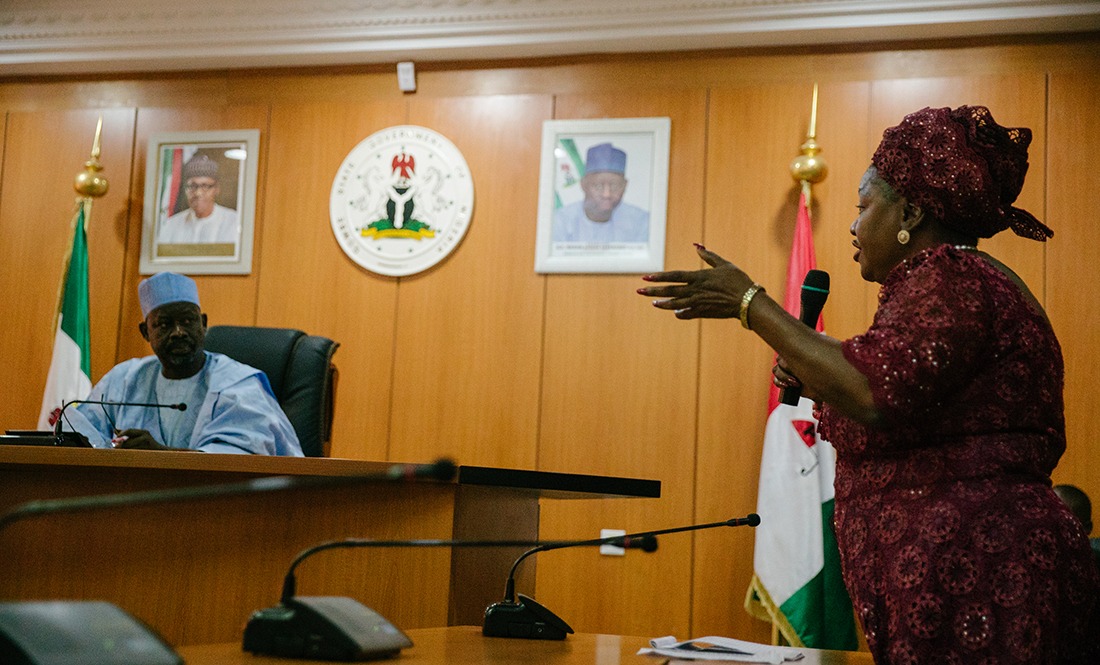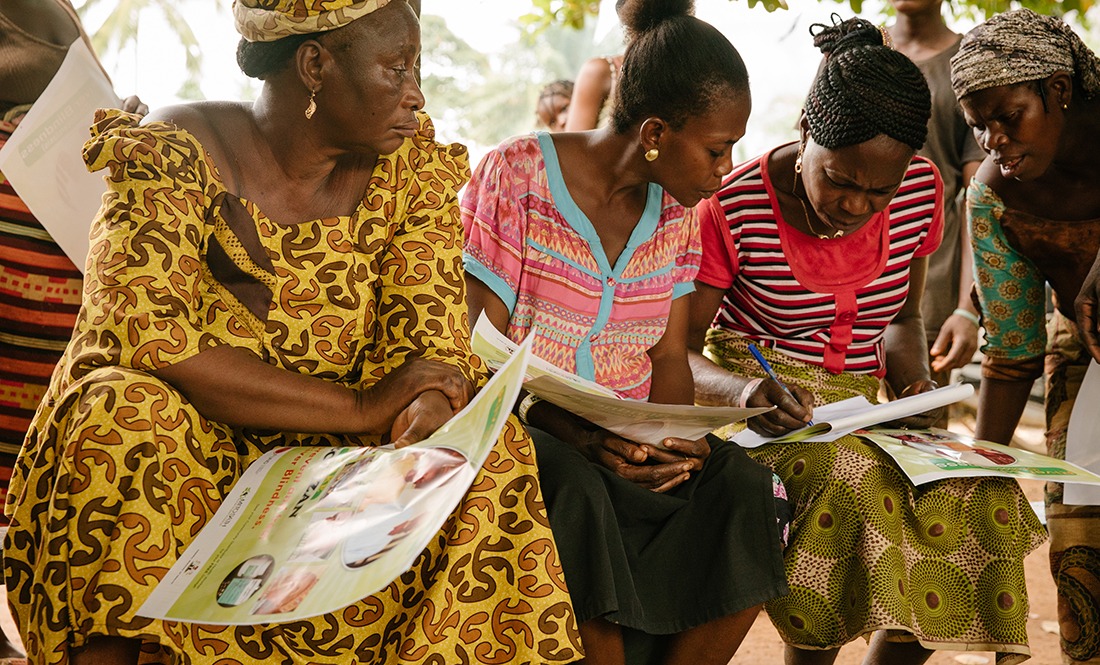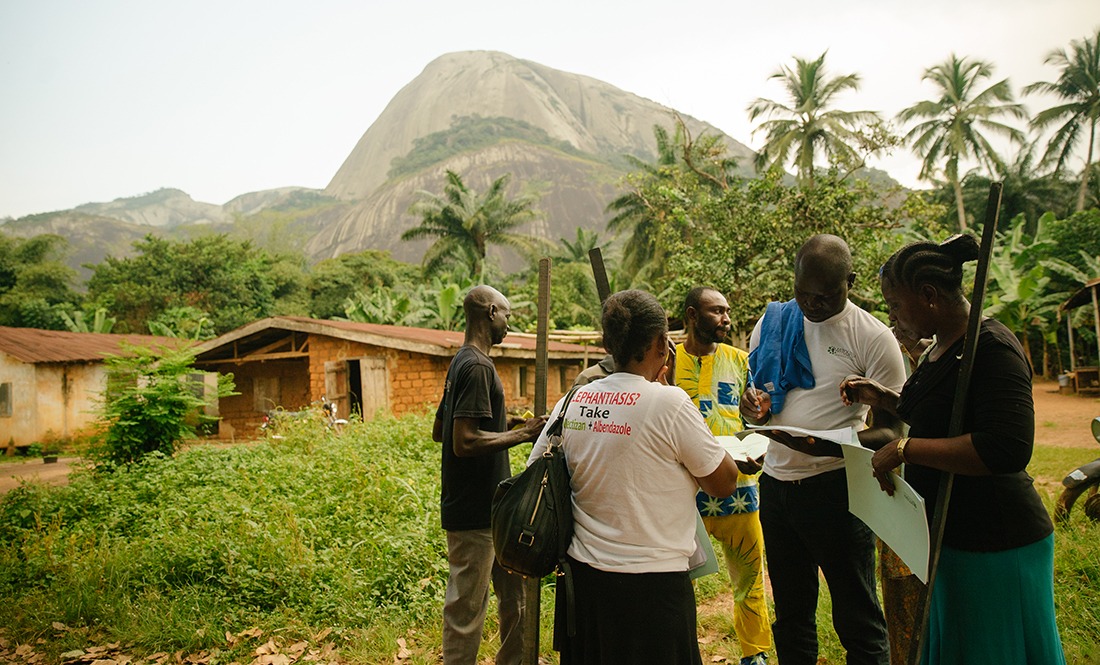Nigeria

NIGERIA
The crowd watched attentively as Rita Oguntoyinbo, president and founder of Amen Foundation, thanked the local officials for their support in helping communities get the medication they need for neglected tropical diseases (NTDs). “You got into your vehicle and drove around to all of the schools to ensure they were all complying and I would like to thank you,” she said.

In Nigeria, the END Fund has supported capacity building with organizations like Amen in an effort to expand their ability to provide NTD treatments to more remote areas of the country. For Rita, it is critical to have the support of local officials, so she travels to various states to engage with all levels of leadership in order to get them more involved in tackling the problem of NTDs.
With a population of more than 195 million people spanning nearly 350,000 square miles or roughly three times the size of Germany, Nigeria has the largest NTD burden in Africa. All five of the most common NTDs are present in the country: intestinal worms, river blindness, trachoma, lymphatic filariasis, and schistosomiasis, with more than 130 million people requiring treatment for at least one NTD in 2016.
These diseases can cause severe pain, disability and even death. The pain can prevent children from attending school and the disfiguring effects cause social isolation for adults. Unable to work, people face long-term economic challenges and become trapped in the cycle of poverty.
Because of Nigeria’s size, the enormous NTD burden and its diversity, it is vital that efforts to control and eliminate NTDs come from organizations on the ground that better understand these complexities. For Rita’s advocacy, her cultural knowledge is indispensable in garnering more support from local leaders.

Local NTD efforts have been around for many years, using a decentralized approach to treat communities. The Nigerian government launched a national plan in 2012 and devoted more domestic financing.
The END Fund began work in Nigeria in 2013 with an investment to Sightsavers. Starting in 2015, we expanded our work by partnering with Helen Keller International and supporting organizational capacity among our local partners Amen and MITOSATH. This strategy has led to increased coverage rates for NTDs and ensures that programs are sustainable.

Franca Olamiju, the executive director of MITOSATH, is optimistic for a Nigeria free of NTDs: “We don’t have to see any more generations of blind people. We don’t have to see any more generations where people are disfigured by river blindness and elephantiasis. And, how can we do that? By lifting the dignity of everybody.”
Working with our partners, we have seen tremendous growth in the ability to reach large portions of the population with effective treatment.
